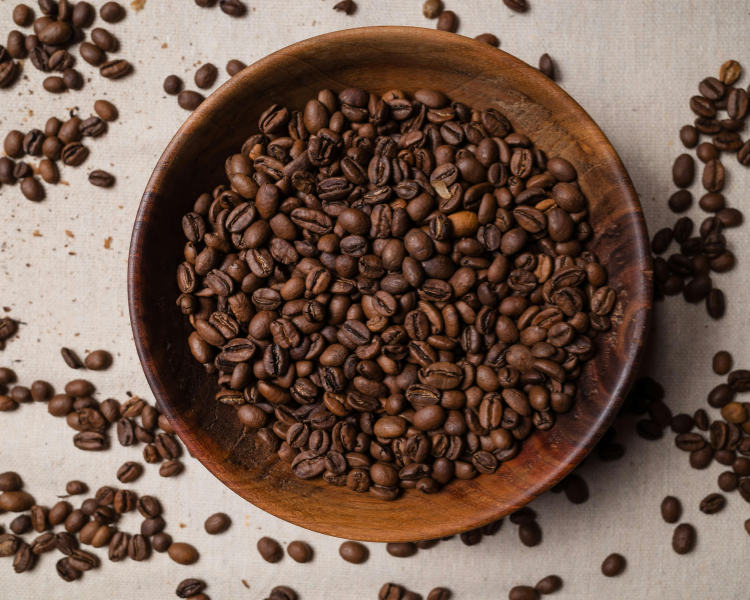
Is Your Coffee the Best Quality? Find Out Now
Share
In a world overflowing with coffee options, discerning the quality of your coffee can feel overwhelming. Are you truly enjoying the best quality coffee, or is your morning ritual lacking the richness and integrity it deserves? In this article, we will explore key factors that determine coffee quality and provide you with the tools to assess your beans, ensuring that your coffee experience is nothing short of exceptional.
Understanding Coffee Quality
Before diving into how to evaluate your coffee, it's essential to understand what constitutes high-quality coffee. Coffee quality is influenced by several factors, including growing conditions, processing methods, and how the beans are prepared before reaching your cup. High-quality coffee typically possesses distinctive flavors, aromas, and body, making each sip a unique experience.
The Importance of Origin
The origin of coffee significantly impacts its quality. Coffee beans are grown across various regions, each contributing unique flavor profiles influenced by the climate, soil, and cultivation methods.
Famous Coffee Regions to Consider
- Ethiopia: Often regarded as the birthplace of coffee, Ethiopian beans are known for their floral notes and bright acidity.
- Colombia: Colombian coffee is rich and well-balanced, often featuring caramel and nutty undertones.
- Jamaica: Home to the world-renowned Blue Mountain coffee, known for its mild flavor and smooth body.
- Sumatra: This region produces coffee with earthy tones and a heavy body, often with chocolate and spice notes.
Processing Methods
The way coffee beans are processed after harvesting plays a crucial role in their final flavor. Here are the primary processing methods:
- Washed (Wet) Process: This method involves removing the coffee cherry's outer fruit before fermentation, resulting in a cleaner and more acidic flavor.
- Natural (Dry) Process: In this process, the cherries are dried in the sun before the beans are extracted, lending fruity and complex flavors.
- Honey Process: A hybrid of the two methods, where some fruit is left on the bean during drying, creating a balance of sweetness and acidity.
Evaluating Your Coffee Quality
Once you understand the factors that contribute to coffee quality, you can begin assessing the beans you are currently enjoying. Here’s how to evaluate your coffee:
Aroma
The aroma of coffee can tell you a lot about its quality. Brew a cup and take a moment to inhale the aroma before tasting. Fresh, high-quality coffee should have a complex and inviting scent profile.
Flavor
As you taste your coffee, pay attention to its flavor profile. High-quality coffee will have a layered complexity and a well-rounded flavor, not flat or overly bitter. Note any specific flavors that stand out to you.
Body
The body refers to the weight of the coffee on your palate. A coffee with good body might feel creamy or rich, while lower-quality coffees can feel thin or watery.
Acidity
Acidity in coffee does not refer to sourness but rather a bright and lively quality that compliments the flavor. High-quality coffees often feature balanced acidity that enhances the overall taste.
Freshness Matters
Even the most premium coffee can taste dull if it's not fresh. Coffee begins to lose its quality soon after roasting, so be sure to check the roast date on your coffee packaging.
How to Store Coffee for Maximum Freshness
- Store in an air-tight container to keep moisture out.
- Keep away from light, heat, and moisture to preserve flavor.
- Consider freezing beans for long-term storage, but avoid repeated thawing.
Brewing Techniques
Your brewing method significantly influences how your coffee tastes. Factors such as water temperature, grind size, and brewing time should be optimized for the best flavor extraction.
Popular Brewing Methods
- Pour Over: This method allows for precise control over extraction, enhancing flavor brightness.
- French Press: Known for producing full-bodied coffee, ideal for enjoying rich flavors.
- Espresso: A concentrated coffee style that brings out bold, intense flavors.
Choosing the Right Coffee
When selecting your coffee, look for high-quality, reputable brands that emphasize transparency in sourcing and production. Consider trying single-origin coffees that showcase the unique characteristics of their origin.
Finding Trustworthy Coffee Brands
It’s essential to choose brands that prioritize quality and ethics. Look for certifications like Fair Trade, Rainforest Alliance, or organic certifications, which often indicate a commitment to quality.
Frequently Asked Questions
How can I tell if my coffee is fresh?
Check the roast date on the package. Coffee is typically best consumed within two to four weeks of roasting.
What is the best brewing method for quality coffee?
The best method depends on your taste preference, but pour-over and French press are often recommended for optimal flavor extraction.
Should I buy whole beans or ground coffee?
Whole beans retain freshness longer than pre-ground coffee. Grinding your beans just before brewing ensures maximum flavor.
Conclusion
Determining the quality of your coffee is vital for enhancing your daily ritual and enjoying a superior cup. By understanding the factors that influence coffee quality, evaluating the coffee you consume, and choosing reputable brands, you can ensure that every cup of coffee you brew is not just good, but truly exceptional.
Ready for a new level of quality in your coffee experience? Explore our collection of premium coffee today!
